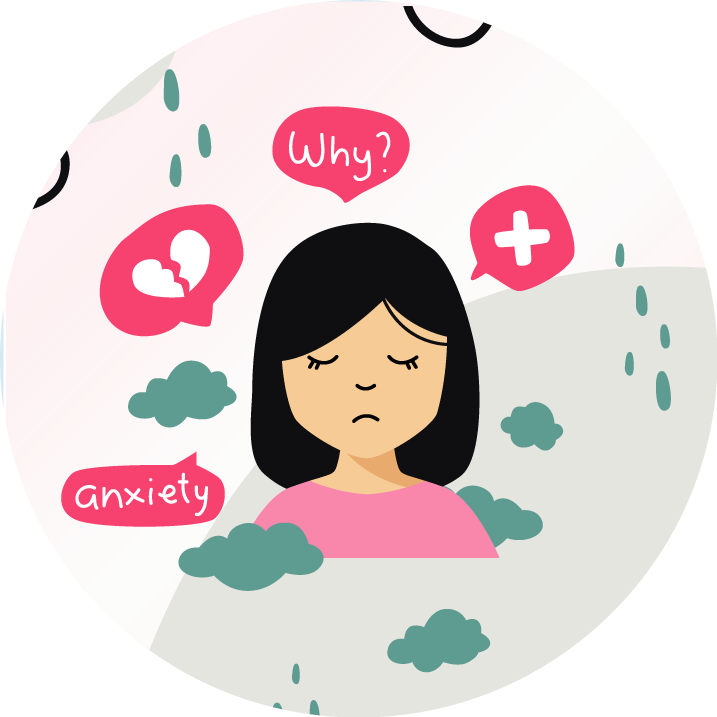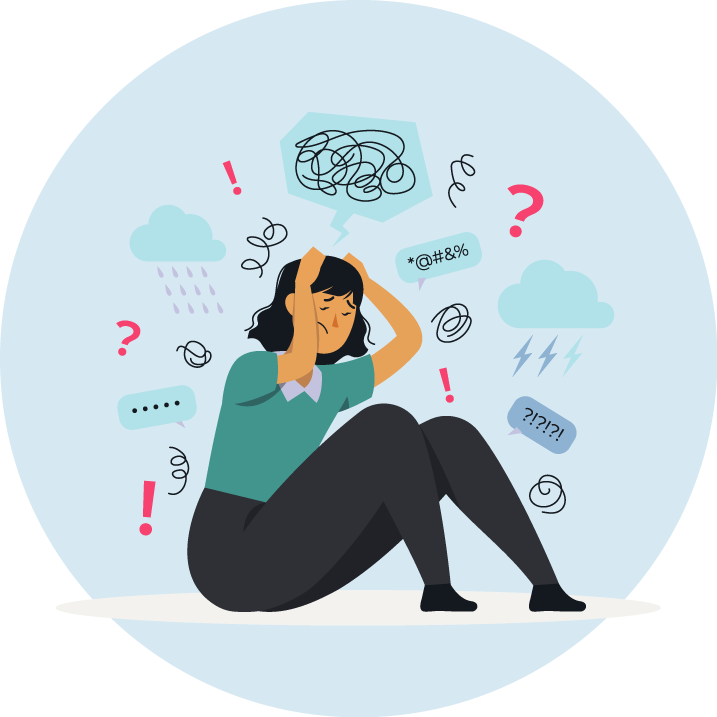Mental Health Services for Student Wellness Centers

Mental Health Services for Student Wellness Centers
August 05 2025 TalktoAngel 0 comments 205 Views
In recent years, mental health has emerged as a crucial component of student well-being, especially within educational institutions. With the growing academic, social, and personal pressures that students face, the role of the Student Wellness program has become more vital than ever. These centers are no longer just places for physical check-ups or stress-relief workshops—they are becoming comprehensive hubs for mental health services and psychological support.
To truly support student well-being, Student Wellness Centers must adopt a proactive, inclusive, and evidence-based approach to mental health care. Integrating psychological principles into their frameworks not only strengthens individual resilience but also fosters a campus-wide culture of empathy, safety, and wellness.
The Psychological Landscape of Student Mental Health
College and university life can be a rollercoaster of emotions and experiences. There are many unknowns while moving from adolescence to adulthood. Students face academic challenges, financial stress, identity formation, social comparison, and future career pressures—all of which can lead to chronic stress, generalised anxiety disorder, and even major depressive disorder if not managed well.
From a psychological standpoint, these stressors activate the sympathetic nervous system, keeping students in a prolonged "fight-or-flight" mode. Prolonged exposure to stress without coping strategies leads to emotional exhaustion, burnout, and impaired cognitive performance, including decreased concentration and memory issues.
Moreover, many students may struggle with imposter syndrome, a form of distorted thinking where they feel undeserving of their accomplishments. This can lead to perfectionism, social withdrawal, and low self-esteem. Without the right interventions, such cognitive distortions can spiral into deeper mental health challenges.
The Role of Student Wellness Centers in Mental Health Care
Student Wellness Centers can play a transformative role in supporting mental health by acting as the first line of defense. This requires not only clinical interventions but also psychological education and prevention strategies.
1. Mental Health Screening and Early Intervention
Routine mental health screening using standardised tools such as the Beck Depression Inventory or Generalised Anxiety Disorder (GAD-7) scale can help identify at-risk students. Early identification enables preventive counselling before symptoms escalate.
Centers should employ trained mental health professionals, including clinical psychologists, counsellors, and psychiatrists, who can diagnose, treat, and refer students for additional services as needed. Early intervention has been shown to reduce symptom severity and improve long-term outcomes (Kessler et al., 2005).
2. Psychoeducation and Cognitive Behavioural Strategies
Educating students about common mental health issues like anxiety, depression, eating disorders, and substance abuse empowers them with knowledge and self-awareness. Student Wellness Centers can conduct psychoeducational workshops that teach evidence-based techniques such as cognitive behavioural therapy (CBT), mindfulness-based stress reduction (MBSR), and self-compassion exercises.
These interventions help students challenge irrational beliefs, develop emotional regulation, and engage in cognitive restructuring, which can significantly reduce negative thought patterns.
3. Peer Counselling and Support Groups
Peer-led support groups foster a sense of belongingness, an important concept in Maslow’s hierarchy of needs. Students are often more comfortable sharing their struggles with peers who understand their context. Training peer counsellors in active listening, empathy, and mental health first aid ensures that help is accessible and non-intimidating. Group therapy or guided support groups for specific concerns—such as grief, trauma, academic stress, or relationship issues—can create safe spaces where students feel heard and validated.
4. Stress Management and Resilience Building
Prolonged stress affects both physical and mental health. Student Wellness Centers can offer structured programs that incorporate positive psychology, resilience training, and biofeedback techniques to teach students how to manage stress effectively.
Workshops on time management, goal setting, assertiveness training, and sleep hygiene can also mitigate common sources of academic stress. Activities like yoga, guided meditation, and expressive arts therapy help regulate the limbic system and enhance emotional balance.
5. Creating a Campus Culture of Mental Wellness
Student Wellness Centers must collaborate with faculty, administration, and student bodies to build a psychologically safe environment. When students feel safe, supported, and unjudged, they are more likely to seek help.Open forums, mental health awareness weeks, and anti-stigma campaigns can help mainstream discussions about mental illness. It is equally important to train teachers to spot distress indicators and make the right referrals.
Embracing Digital and Hybrid Mental Health Solutions
In an increasingly digital world, students often seek help through online platforms. Whether due to time constraints, fear of judgment, or personal preference, many students find virtual therapy more accessible.
Online Counselling with TalktoAngel
TalktoAngel provides a robust platform for online counselling tailored to the needs of students and young adults. Through secure video sessions, students can connect with licensed therapists from the comfort of their own space. The platform specialises in anxiety, stress management, career guidance, and emotional well-being, making it an excellent complement to campus-based services.
Offline Counseling at Psychowellness Center
For those who prefer face-to-face interaction, Psychowellness Center offers offline counselling services in a supportive clinical setting. With trained psychologists specialising in adolescent and young adult mental health, students can receive therapy for a range of issues, including academic burnout, trauma, family concerns, and more.
Conclusion
The modern student faces a variety of psychological challenges that cannot be ignored. Student Wellness Centres are uniquely positioned to address these needs through comprehensive mental health services grounded in psychological science. By offering screenings, therapeutic interventions, peer support, and psychoeducational tools, these centres become the foundation of a healthier, more resilient student body. As mental health becomes a cornerstone of overall student wellness, both online counselling platforms like TalktoAngel and offline centres like Psychowellness Center are invaluable allies in ensuring that no student faces their struggles alone. Together, these resources can help students not just survive, but thrive academically, emotionally, and socially.
Contributed By: Dr. (Prof.) R. K. Suri, Clinical Psychologist and Life Coach, &. Ms. Mansi, Counselling Psychologist.
References
- Kessler, R. C., Berglund, P., Demler, O., Jin, R., & Walters, E. E. (2005). Lifetime prevalence and age-of-onset distributions of DSM-IV disorders in the National Comorbidity Survey Replication. Archives of General Psychiatry, 62(6), 593–602. https://doi.org/10.1001/archpsyc.62.6.593
- Seligman, M. E. P., & Csikszentmihalyi, M. (2000). Positive psychology: An introduction. American Psychologist, 55(1), 5–14. https://doi.org/10.1037/0003-066X.55.1.5
- Beck, A. T. (1976). Cognitive therapy and the emotional disorders. International Universities Press.
Leave a Comment:
Related Post
Categories
Related Quote

“Anxiety is a thin stream of fear trickling through the mind. If encouraged, it cuts a channel into which all other thoughts are drained.” - Arthur Somers Roche

"It is okay to have depression, it is okay to have anxiety and it is okay to have an adjustment disorder. We need to improve the conversation. We all have mental health in the same way we all have physical health." - Prince Harry

“You say you’re ‘depressed’ – all I see is resilience. You are allowed to feel messed up and inside out. It doesn’t mean you’re defective – it just means you’re human.” - David Mitchell, Cloud Atlas

"Man is not worried by real problems so much as by his imagined anxieties about real problems." - Epictetus

"Mental health and physical health are one in the same for me - they go hand in hand. If you aren't physically healthy, you won't be mentally healthy either - and vice versa. The mind and body is connected and when one is off, the other suffers as well" - Kelly Gale
Best Therapists In India



























SHARE